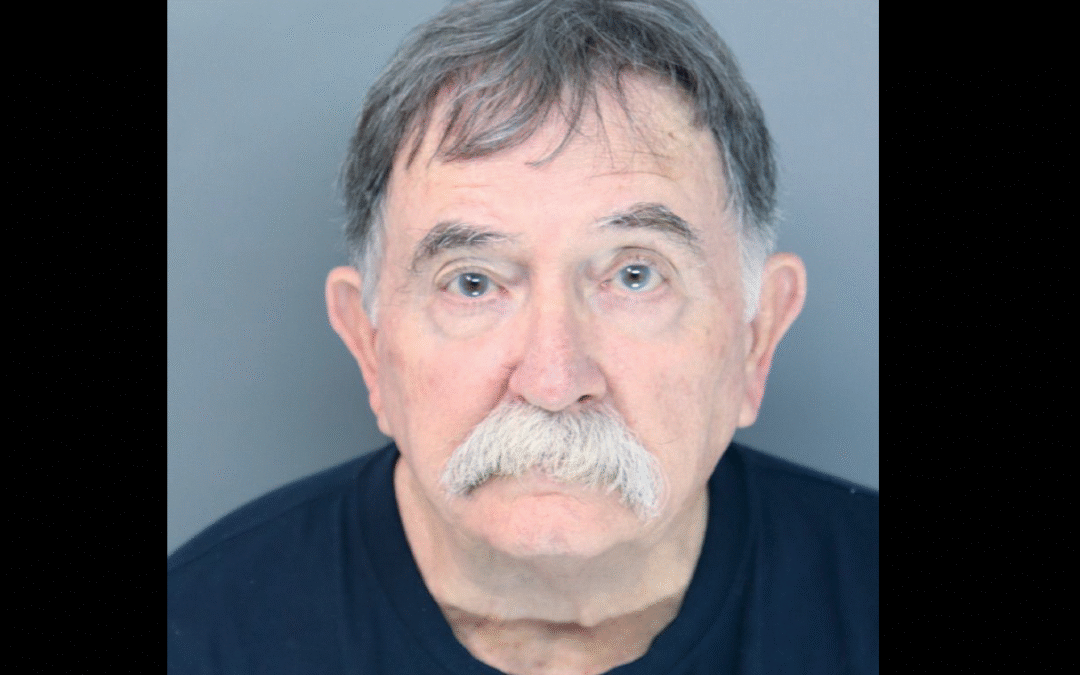The Day of Pentecost is the official end of the Easter season. Pentecost Sunday, also known as Whitsunday, is a Christian holiday commemorating when the Holy Spirit descended on the Apostles of Jesus Christ in Jerusalem. Easter lasts for a total of 50 days, from Easter Sunday until the Day of Pentecost. So, I invite you to think with me on the Biblical recounting of the events from Easter Sunday through the Ascension and the descending of the Holy Spirit at Pentecost, that great fifty-day period. Pentecost Sunday is what is referred to as a “moveable feast.” This is because there is no fixed date on the calendar for when Pentecost is celebrated. As Pentecost traditionally occurs 50 days after Easter, its date depends on when Easter is.
I earned an undergraduate degree in speech and theatre. There is nothing I like better than a good script, one that grabs the audience’s attention from the curtain’s rising to the last applause. It is fantastic when the writer is able to take a story, real life or fictitious, and captivate the audience with the written word. We have an award-winning script in the Easter story, written by a team of absolutely the best script writers ever, who bring to life the one who once was dead, and now lives among us.
This year, 2024, Easter began on March 31 and will end on Pentecost Sunday, May 19. These fifty days have been an interesting period for the disciples. The Easter story has several script writers if you will. The gospel writers have all, independently, collaborated to write the best story ever told. The stage is Jerusalem and surrounding territories. Jesus is the principal character, and there is a fantastic supporting cast. Each of the gospel writers recorded the events of this period to be shared with their constituent groups. Biblical scholars suggest that Matthew and Luke may have had knowledge of Mark’s writings because it is concise and the oldest of the synoptic gospels. Matthew and Luke are so similar, while John tells many of the same stories, too. But in any event, all four tell the same story. Today we have the advantage of reading and comparing the same story in all four gospels, in one canon, and can rightfully come to the conclusion that the story is true.
The scene opens with Jesus’ entrance into Jerusalem through the east gates, while simultaneously, a Roman army enters through the west gates. A drummer sets the cadence with a drum beat as steady as a heartbeat; all can sense that something is about to happen. Earthly power meets Heavenly powers. The tension builds, the intensity of that beat keeps us in suspense until Jesus is arrested, crucified and, on Easter Sunday morning, we discover that the principle is no longer dead but is alive and is seen by many over the next 40 days, until the Ascension.
I believe that most of us, whether Christian or not, know the story of Holy Week that led to the crucifixion, to that miracle of miracles that occurred on Easter Sunday. But what is not as well known by many is the post-Easter events leading to the Day of Pentecost. Therefore, I invite you to continue thinking with me about the events from Resurrection to Ascension to Pentecost.
One may rightfully wonder what happened in the events after Jesus’ resurrection. Well, the New Testament records several events that took place during the 50 days after Jesus’ death. These events are documented in the gospels. Jesus, a Jewish Rabbi, was crucified on the spring festival of Passover. He was buried on the Feast of Unleavened Bread and resurrected on the Feast of First Fruits. This brings us to the final spring festival, which is known as Pentecost. This occurred 50 days after Passover and is known as the day when the Holy Spirit was given to the Church. This concludes the Easter season. These stories, when told together, help me to understand what I have described from my worship tradition, in other postings, as the Great Memorial Acclamation: “Christ has died, Christ is risen, Christ will come again.”
What happened after the Resurrection? First, after the crucifixion Luke writes that two of Jesus’ followers left Jerusalem to return home to Emmaus. On the way, they were met by Jesus. However, they did not recognize Him at first. After they had dinner together, Jesus revealed to them who He was. Jesus left them and they went back to Jerusalem to tell the disciples what they had seen. (Luke 24:13-35)
Ten of the disciples are huddled together, except for Thomas, who was mysteriously absent. And Judas, who betrayed Jesus to the authorities, was now humiliated and had taken his own life at this point. Jesus appeared to them in the Upper Room. (John 20:19-25). Jesus appeared again, this time to eleven of the disciples. Thomas was there and witnessed the marks of crucifixion on Jesus’ hands and side. (John 20:26-30). Upon seeing the marks of crucifixion for himself, Thomas no longer doubts but becomes a believer in the Resurrection.
In the sequence of post resurrection events, Jesus has appeared several times to the disciples. Now, Jesus appeared to a crowd of over 500. (I Corinthians 15:6). We are at the point in the story when Jesus gives the Great Commission: He instructed the disciples to preach the Gospel and make disciples of others. He also instructed them to wait in Jerusalem for the Holy Spirit. (Mark 16:14-18, Acts 1:1-8). We read in the Acts of the Apostles, that after Jesus gave His disciples their final instructions, He ascended into heaven. (Acts 1:9-11). “Christ has died, Christ is risen, Christ will come again.” We are waiting for His return.
Seven days after the Ascension, the disciples gathered in Jerusalem in preparation for the Feast of Pentecost. The Holy Spirit was poured out on the disciples and those with them. They immediately began telling others about Jesus.
The words “apostles” and “disciples” are often interchangeable, but there are slight differences in their meanings. Being a “disciple” means being a follower, while being an “apostle” means being a teacher. Jesus had more than 12 followers; however, the people he chose as his apostles are also known as the 12 disciples.
“Speaking in tongues” is believed by many to mean that the Apostles spoke in different languages to preach the word of God; however, Pentecostal Christians believe that speaking in tongues means they were speaking in “Glossolalia” instead. This unknown language phenomenon contains unintelligible, rapid speech-like sounds.
During the 50 days after Jesus’ death, He had many interactions with his disciples and followers, providing them with guidance and encouragement. Unfortunately, we often celebrate Easter as if it were a one act play and then move on without realizing that the “play” is not over; it did not end with the resurrection.
What if this year we are more purposeful and utilize the time between Easter and Pentecost to connect with others? What if we show Jesus that we love Him by feeding his sheep? What if, every day, we reach out to a different person to offer support and motivation? Peter, who denied knowing Jesus, three times before the crucifixion, is forgiven, and invited, in the post-resurrection, to eat broiled fish on the beach with Jesus and asked repeatedly, “do you love me”? Peter answered three times, yes, I love you. Each time, Jesus instructed Peter that to love Him is to feed his sheep.
In spite of our failures, in spite of our weaknesses and our shortcomings, God can forgive us and restore us and use us, yes even us! Jesus restores Peter, who denied knowing him, back to service. Jesus asked Peter, “Do you love Me?” When Peter said he did, then Jesus told him, “Feed My Sheep.” If we love the Lord, we will feed God’s sheep.
I am grateful for this entire Easter season, especially in my retirement, since Easter is so important to clergy. It is wonderful for me to mark this period as being meaningful and significant in my life. I try to recount daily, all those times that I have met the risen Christ when I was unaware but later realized that my heart was burning inside because God’s Spirit was within me. All those times when I have said I love you Lord and Jesus has responded, if you love me, “feed my sheep.” This is indeed the greatest story ever told. And we can be thankful that it will have a long run. The encores will last for 50 days. We will leave and marvel at how our hearts have been warmed and we will invite the giver of life to come under our roof and rest. Thanks be to God! Alleluia! He is risen, ascended, and will come again!










